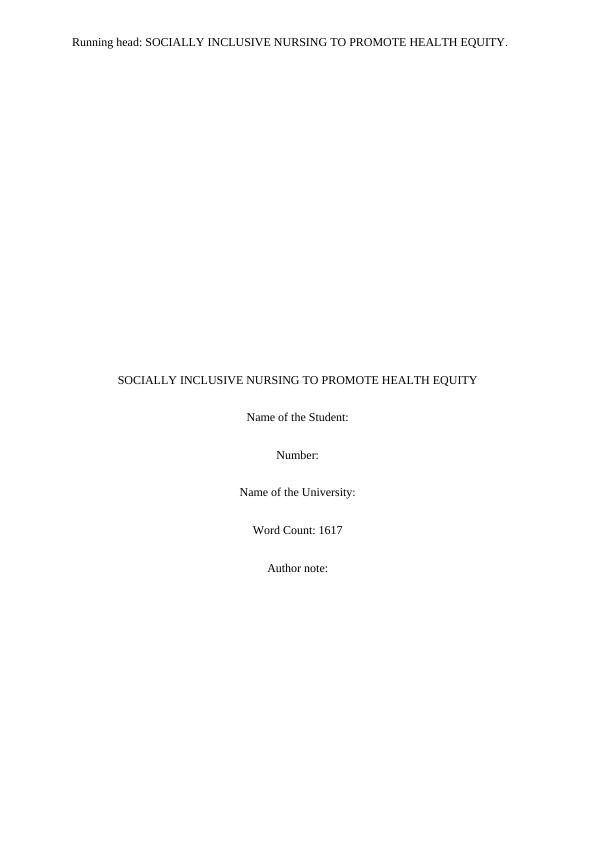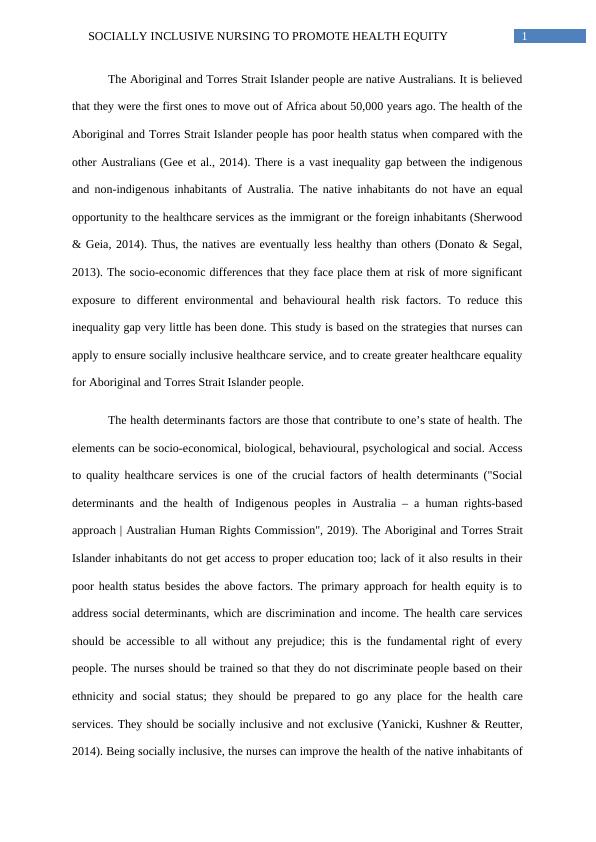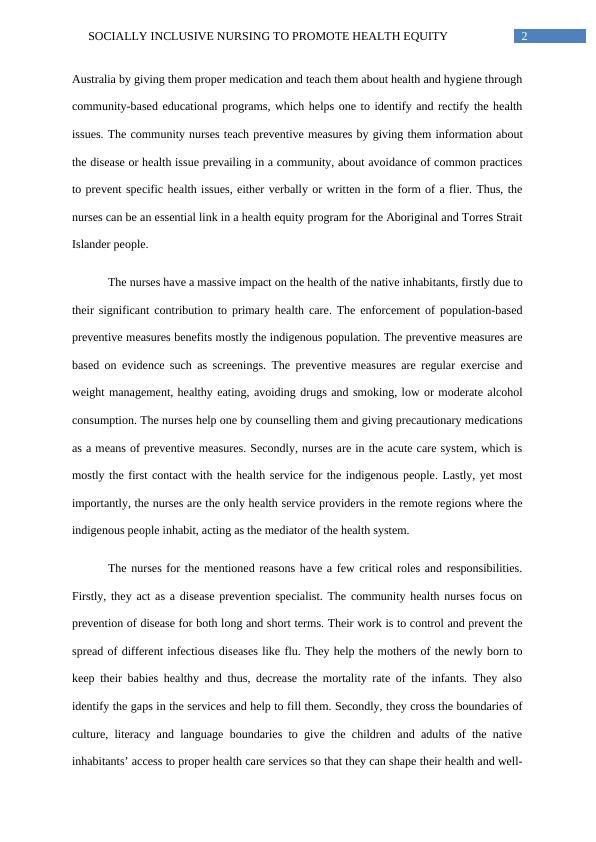Socially Inclusive Nursing to Promote Health Equity
Discuss socially inclusive nursing roles in Aboriginal Community Controlled Health Services that promote equitable health for Aboriginal and Torres Strait Islander peoples.
8 Pages2455 Words182 Views
Added on 2023-04-23
About This Document
This study is based on the strategies that nurses can apply to ensure socially inclusive healthcare service, and to create greater healthcare equality for Aboriginal and Torres Strait Islander people. Learn about the impact of nurses on the health of the native inhabitants of Australia and the critical roles and responsibilities of nurses in providing healthcare services.
Socially Inclusive Nursing to Promote Health Equity
Discuss socially inclusive nursing roles in Aboriginal Community Controlled Health Services that promote equitable health for Aboriginal and Torres Strait Islander peoples.
Added on 2023-04-23
ShareRelated Documents
End of preview
Want to access all the pages? Upload your documents or become a member.
PART 13: Cultural Barriers which lead to inequitable health outcomes for Aboriginal Torres islanders
|11
|2125
|141
ABORIGINES AND TORRES STRAIT ISLANDER ARTICLE 2022
|14
|3510
|41
Bachelor of Nursing Health
|8
|1851
|42
Aboriginal & Torres Strait Islander Health Assignment
|8
|2250
|107
Socially inclusive nursing roles in Aboriginal Community Controlled Health Services
|7
|2118
|80
Health Disparities Faced by Aboriginals in Australia
|13
|3317
|148



